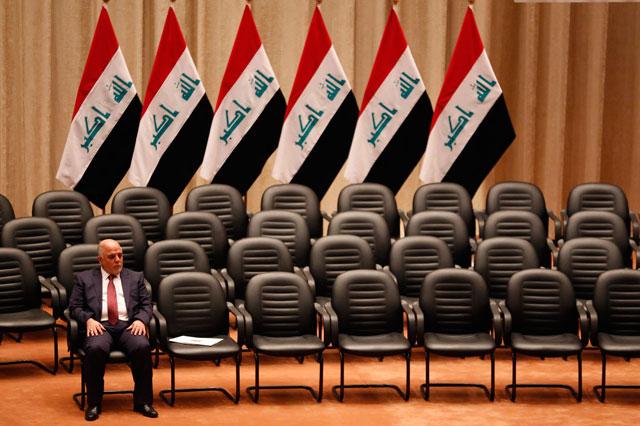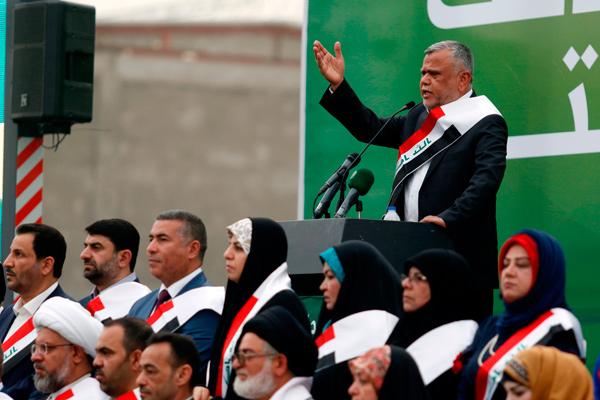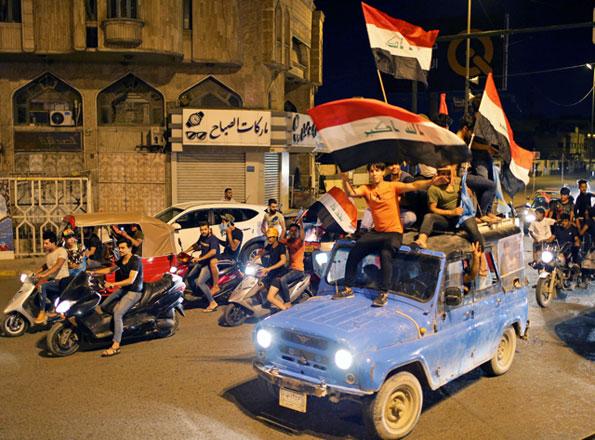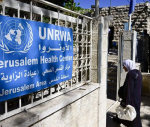You are here
Iraq needs more than new gov’t to address woes — experts
By AFP - Sep 09,2014 - Last updated at Sep 09,2014

BAGHDAD — Iraq's new Cabinet line-up is not a major change and much more is needed to address grievances that contributed to the rise of brutal jihadists who seized swathes of the country, experts say.
Having the support of Iraq's various religious and ethnic communities, especially members of its alienated Sunni Arab minority, is essential to the government's fight to regain ground lost to a sweeping offensive led by the Islamic State (IS) jihadist group.
But while Iraq has faced heavy international pressure, including from the United States and United Nations, to do this through forming a broader-based government, other factors are ultimately more important, experts say.
MPs voted Monday to approve 26 Cabinet-level nominees, ushering in Haider Al Abadi's term as premier.
But while US Secretary of State John Kerry praised the "new and inclusive" government as a "major milestone", the key interior and defence portfolios remain unfilled and the Cabinet has not undergone major changes.
The proportion of posts given to members of the Shiite majority and the Sunni Arab and Kurdish minorities is largely the same as the previous government, and almost a third of the new ministers and deputy premiers held such posts before.
"In terms of the sectarian division of the government, it's actually, if you're going to take it strictly by numbers, less inclusive," said Fanar Haddad, a research fellow at the Middle East Institute of the National University of Singapore.
And Kirk Sowell, the publisher of the Inside Iraqi Politics newsletter, said the new Cabinet “is not a radical change”.
Both Sowell and Haddad said the focus on government composition is in any case misplaced.
“The last government was inclusive — this is meaningless,” said Sowell. “It’s really a matter of policy.”
‘Inclusivity meaningless’
Despite being broad-based, the previous government headed by Nouri Al Maliki alienated Sunnis and was also frequently at odds with the country’s autonomous Kurdish region.
“Inclusivity seems to be measured by the number of positions doled out to Sunnis and Shiites and Kurds, which of course doesn’t mean anything,” said Haddad.
“What really matters is the power that comes with that position,” he said. “That, we’re not going to know for a while, until the government actually starts operating.”
How the government deals with the provinces where fighting is taking place, the Shiite militias that are bolstering security forces, and the Kurdish region will all be key, he said.
Abadi asked for a week to fill posts including the interior and defence ministries, and who obtains them will likely play a key role in relations between the government and Sunni Arabs.
Former transport minister Hadi Al Ameri, who commands the powerful Shiite Badr militia, has been angling for one of the two posts.
If he “becomes interior minister, that basically puts an end to any kind of security power-sharing with Sunni Arabs”, Sowell said.
“It’s horrendous... he’s a militia leader and an Iranian proxy.”
Haddad agreed, saying: “Whatever benefits accrued from forming a new government, appointing Hadi Al Ameri as head of defence or interior, I think, would be a big blow to any hope of trying to bring a... critical mass of Sunnis back on board.”
And it will be difficult if not impossible for security forces to push back the militants without the support of the local populations in the predominantly-Sunni areas they hold — something at least partially contingent on their politicians’ relationship with the government.
Because Sunni politicians were alienated from the last government, “there was no cooperation between the citizen and the security forces in addressing the security situation”, said Issam Al Faili, professor of politics at Baghdad’s Mustansiriyah University.
Related Articles
BAGHDAD, Iraq — An incumbent prime minister, his ousted predecessor and a paramilitary chief instrumental in defeating the Daesh group are t
BAGHDAD — Ahmed Chalabi, a key lobbyist for the US-led invasion of Iraq who was blamed for providing false intelligence on weapons of mass d
BAGHDAD, Iraq — Iran and its allies were mustering a bid Wednesday to limit the role of fiery Shiite cleric Moqtada Sadr in Iraq's next gove

















